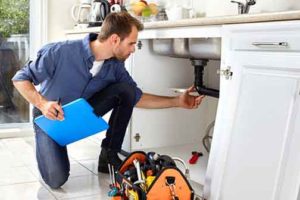
Plumbing issues in your home are a big deal because they affect your family’s comfort and safety. However, Ocean Realty Management says, not all plumbing issues in your home are equal in their effect. Some plumbing problems are mild, while others can be absolute nightmares.
This second type of plumbing issue is called plumbing emergencies; they can make your home uninhabitable. How do you deal with plumbing emergencies in your home? That depends on the kind of plumbing emergency.
But generally, when dealing with a plumbing emergency, you need three things, a level head, proper information, and quick action. This post will discuss the worst plumbing problems in your home and how to avoid them.
5 plumbing nightmares in the home and how to avoid them
Clogged toilet
A toilet that won’t flush can be your worst plumbing nightmare, especially if it is the only toilet in your home. If a toilet is not flushing, trying to force it can result in the toilet overflowing and causing an even bigger problem. How can you avoid this issue?
- Only flush toilet paper and human waste; nothing else should go into your toilet, including all so-called flushable products.
- Use single-ply toilet paper if you use a lot of toilet paper or the toilet has a history of clogging.
- To prevent mineral buildup and debris accumulation, clean the toilet thoroughly at least once a month.
- Inspect your sewer line for tree root intrusion if you have mature trees in your yard.
A broken Water Line
If the problem is undetected, it can waste hundreds of gallons of water daily and damage your landscaping or subject your building to the risk of structural damage. How do you avoid this plumbing nightmare?
- Keep an eye on your water bill; look for spikes in water usage that are not due to known changes in your home.
- Monitor the water pressure; low water pressure is a reliable sign that your water line is leaking.
- Avoid planting trees or shrubs with invasive root systems near the location of your water line.
- Have your water lines inspected yearly by a professional plumber. It lets you detect problems before they become emergencies.
Frozen and burst pipes
The pressure of frozen water inside a pipe can rupture it. When that pipe eventually thaws, the burst section will discharge water into your home. A frozen pipe may prevent water from reaching your entire home or specific plumbing fixtures. How do you avoid this problem?
- Keep the home warm at all times by having your thermostat above 55°F (13°C) always.
- Keep cabinet and room doors slightly open to let warm air circulate to unheated spaces in the house.
- Keep garage doors closed at all times so that your water pipes are not exposed to cold air.
- Insulate all exposed pipes in the home, as well as the attic, basement, and crawlspace.
- Keep faucets slightly open to ensure a constant flow of water through the pipes.
- Have a plumber inspect your plumbing for leaks and weak spots before winter.
Clogged sink, shower, or tub
A clogged sink, bath, or shower drain is not only annoying, it can upset your daily routine. If the sink, shower, or tub doesn’t drain at all, you will be unable to use it. If it drains slowly, you will waste time waiting for it to empty. Here is how to avoid this plumbing nightmare.
- Install drain strainers to keep hair, food scraps, and other debris out of the drains.
- If the water in your area is hard, consider installing a water softener in your home.
- Do not dump grease, oil, fats, and food waste into the kitchen drain.
- Do not use your garbage disposal unit as a trash can.
- Every month, use vinegar and baking soda or hot water to unclog your drains.
No hot water
This can be a life-threatening problem if it happens in winter or if there are elderly people or infants in your home. Without hot water, you will struggle with dishes and laundry. There are many reasons why a water heater stops producing hot water. You can prevent them by doing the following:
- Ensure the proper thermostat settings. The thermostat setting may have been lowered accidentally.
- Every month, check the water heater for leaky or loose pipe connections.
- Drain the water heater every 6-12 months to get rid of sediments and prevent corrosion.
- Make sure your water heater is the right size for the hot water needs of your household.
- Have a professional plumber do comprehensive maintenance for the water heater yearly.
The above steps can help prevent plumbing nightmares in your home, but what about when you already have a plumbing emergency? The best way to deal with plumbing emergencies is to call your plumber. Having a quick emergency plumbing service on hand is necessary for dealing with plumbing nightmares in your home.
